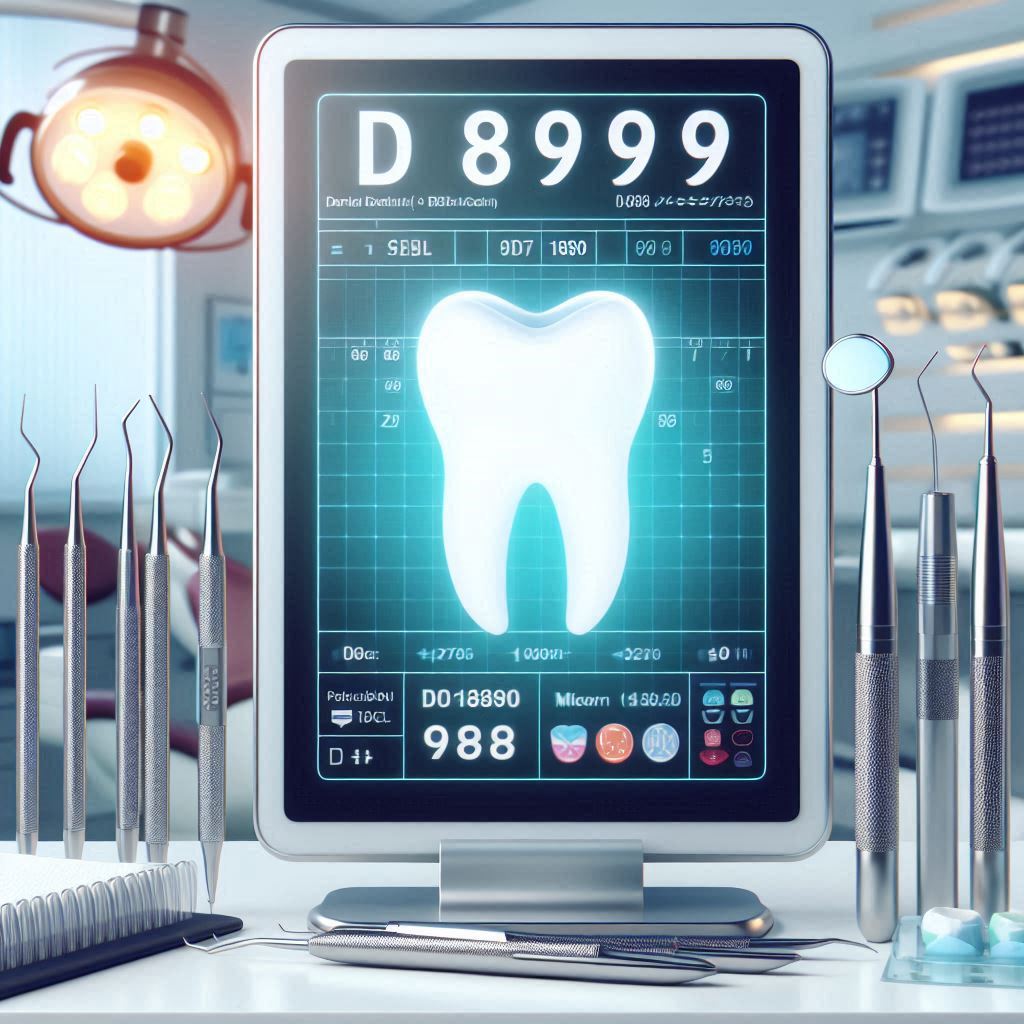D8999 Dental Code
Orthodontic treatment is a complex field with a wide range of procedures, each requiring precise documentation and coding. Among the many dental billing codes, D8999 (Unspecified Orthodontic Procedure) stands out as a unique and sometimes controversial entry. This code is used when a treatment does not fit into any other predefined category, making it both flexible and ambiguous.
But when should dentists use D8999? How do insurance companies view it? And what are the risks of improper usage? This guide will explore every aspect of the D8999 dental code, providing dentists, orthodontists, and billing .

2. Understanding the D8999 Dental Code
Definition and Purpose
The D8999 code falls under the Orthodontic Treatment category in the Current Dental Terminology (CDT) manual. It is defined as:
“Unspecified orthodontic procedure, by report.”
Unlike other codes (e.g., D8080 for comprehensive braces or D8670 for periodic orthodontic adjustments), D8999 is a catch-all for treatments that don’t fit standard classifications.
When Is D8999 Used?
Dentists may apply this code in cases such as:
- Custom appliances not covered by existing codes
- Experimental treatments (e.g., 3D-printed aligners in early adoption)
- Unforeseen complications requiring unplanned procedures
- Adjunctive services (e.g., specialized retainers, emergency adjustments)
3. Common Scenarios for D8999 in Orthodontics
Complex Cases Requiring Custom Solutions
Some patients present with rare anatomical variations (e.g., impacted canines, cleft palate revisions) that demand bespoke appliances. Since no specific code exists, D8999 allows flexibility.
Interim or Adjunctive Procedures
If a patient needs a temporary fixation device before full braces, D8999 may apply.
Unforeseen Complications
Example: A bracket breaks in an unusual way, requiring a non-standard repair method.
4. How D8999 Differs from Other Orthodontic Codes
| Code | Description | When to Use |
|---|---|---|
| D8080 | Comprehensive Braces (Full Treatment) | Standard metal/ceramic braces cases |
| D8670 | Periodic Orthodontic Adjustment | Routine check-ups and wire changes |
| D8999 | Unspecified Orthodontic Procedure | Non-standard, custom treatments |
5. Billing and Insurance Considerations
Will Insurance Cover D8999?
- Some insurers reject it due to its vague nature.
- Pre-authorization is critical—submit a detailed narrative report.
- Medicaid & PPOs may have different policies.
Documentation Requirements
- Clinical notes justifying the need
- Photographs/X-rays supporting the claim
- A written report explaining why no other code fits
6. Ethical and Legal Implications
Misusing D8999 can lead to:
- Audits and claim denials
- Legal action for fraudulent billing
- Loss of insurance network participation
Best Practices:
✔ Use only when no other code applies
✔ Maintain thorough documentation
✔ Consult with billing specialists
7. Case Studies
Case 1: Custom Palatal Expander for Cleft Palate Patient
A 12-year-old required a modified expander not covered by D8080. D8999 was used, and insurance approved after a detailed appeal.
Case 2: Emergency Repair of a Fractured Aligner
A patient’s Invisalign tray cracked unexpectedly. Since no standard code covered the repair, D8999 was justified.
8. Patient FAQs About D8999
Q: Why was I billed under D8999 instead of a regular orthodontic code?
A: Your treatment required a non-standard approach not listed in standard billing codes.
Q: Will my insurance cover D8999?
A: It depends on your plan. Your dentist may need to submit extra documentation.
Q: Is D8999 a sign that my case is unusual?
A: Not necessarily—it just means your treatment doesn’t fit a predefined category.
9. Conclusion
The D8999 dental code is a vital tool for handling non-standard orthodontic treatments, but it must be used responsibly. Proper documentation, ethical billing, and clear communication with insurers are key. By understanding its applications, dentists can ensure compliance while providing the best patient care.


